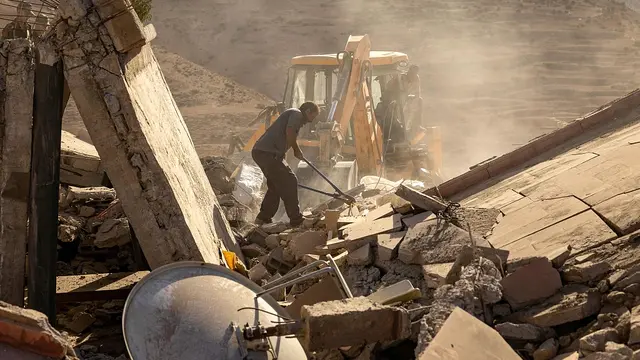Mexico's top political parties this week named their candidates for the 2024 presidential election.
Both candidates are engineers and have political experience. And for the first time ever, both front-runners to become Mexico's next president are women.
The death toll from Friday's magnitude-7 earthquake in Morocco has risen to more than 2,000, with over 1,000 others critically injured. The earthquake's epicenter was near Ighil in Al Haouz Province, destroying buildings in the deadliest tremor to hit the country in decades.
After the quake, many countries and regions, including Singapore, Germany and Türkiye, conveyed their concern to Morocco and decided to provide humanitarian aid. Singapore Red Cross pledged $50,000 to the country. Meanwhile, France, Spain and Israel decided to send medical and rescue teams to Morocco for aid. The Red Cross Society of China decided to provide $200,000, and a Chinese medical rescue team is working around the clock to save earthquake survivors in Morocco.
The strong earthquake affected almost all the major cities in Morocco. However, the villages near the epicenter were even more damaged. According to Martin Jay, a journalist living in the south of Marrakesh, houses in the villages are usually made with wood and mud. The quake almost destroyed every building, leaving the residents homeless.
Some ancient heritage sites were also destroyed in the earthquake. For example, the Koutoubia Mosque, built in the 12th century, was damaged, but the extent is not immediately clear. Its 69-meter minaret is known as the "roof of Marrakech." Moroccans also posted videos showing damage to parts of the famous red walls that surround the old city, which is a UNESCO World Heritage site.
"The problem is that where destructive earthquakes are rare, buildings are simply not constructed robustly enough to cope with strong ground shaking, so many collapse, resulting in high casualties," said Bill McGuire, professor emeritus of geophysical and climate hazards at the University College London.
(Reuters)
 简体中文
简体中文

